2009/06/01
254. zenbakia

eu es fr en cat gl
Aparecerá un contenido traducido automáticamente. ¿Deseas continuar?
Un contenu traduit automatiquement apparaîtra. Voulez-vous continuer?
An automatically translated content item will be displayed. Do you want to continue?
Apareixerà un contingut traduït automàticament. Vols continuar?
Aparecerá un contido traducido automaticamente. ¿Desexas continuar?
IPCC from data to reports
Text created by automatic translator Elia and has not been subsequently revised by translators.
Elia Elhuyar
We often hear and read climate change and the IPCC together. But what is the IPCC? How do they work? How many people participate? How are they coordinated? All this is explained by the physicist of Bucharest, Roxana Boiburu, who is in direct contact with the IPCC.
IPCC from data to reports
01/06/2009 | Kortabitarte Egiguren, Irati | Elhuyar Zientzia Komunikazioa
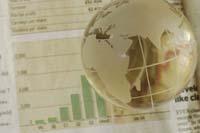
(Photo: Paul Cowan/350RF)
Policy makers need an objective source of information on the causes of climate change, its possible environmental consequences, its socio-economic consequences and its possible responses. To respond to this need arose the IPCC Intergovernmental Panel on Climate Change, created in 1988 by the World Meteorological Organization and the United Nations.
According to Roxana Boujo, the IPCC organization was born precisely when scientists discovered that climate change was intensifying due to human activity. I believe that the organization is born from the transformation of the social environment or the "climate". In fact, the end of the Cold War consolidated international cooperation and scientists benefited from it by exchanging data, ideas and knowledge."
It was not time the only factor. It is also necessary to take into account the work of individuals who have tried to open channels of communication between scientists experts in climate change and international policy makers. "Swedish professor Bert Bolin was, for example, one of the pioneers in climate research," says Bouet. In fact, Professor Bolin was researching carbon circulation in nature by 1950. He was the first president of the IPCC and one of its founders."
Main source of information
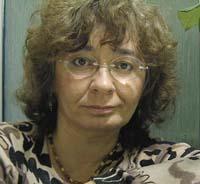
Roxana Bouetu (1962, Bucharest). He is a PhD in Physics, works in the meteorological administration of Bucharest and has a direct relationship with the IPCC.
The IPCC began working on the conviction that measures to curb climate change were necessary and the expected consequences. It is made up of scientists from around the world who monitor research on climate evolution. The mission of these scientists is to advise policy makers by regularly publishing reports.
Since its creation 21 years ago, the IPCC has a clear objective: to provide objectively, openly and clearly the most appropriate scientific, technical and socio-economic information on climate change. To do this, it publishes evaluation reports, special reports, methodological guides and technical documents.
It has three regular working groups and a specific working group - which carries out an inventory of greenhouse gases. The first working group analyses the scientific aspects or physical foundations of climate change. The second working group analyses the negative and positive effects of climate change and the adaptation pathways. Finally, the third working group addresses the possibilities of limiting greenhouse gas emissions and other ways to mitigate the effects of climate change.
To do this, the IPCC collaborates with hundreds of experts from around the world. The Government proposes these experts and the IPCC, for the preparation of the reports, selects the main authors of each chapter based on their experience and the number of articles published, among others. Selection of experts from different countries for greater global representation. In addition, these main authors and authors use expert collaborators in the field of each moment, that is, other scientists, others, thus creating a network. All of them write the chapters of each report based on the contributions and information obtained.
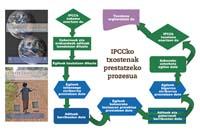
To date, the IPCC has published four reports: Years 1990, 1995, 2001 and 2007. The fifth is being worked.
All these authors work from their respective countries, exchange ideas through the Internet, make the necessary changes and write chapters. They meet once a year with the authors, editors and presidents of the other chapters to publicize the work done and define the steps to follow in the future.
Physicist Roxana Bofluu has experience in these works. "It had just begun when the process of developing the fourth IPCC assessment report began. My first impression was that the process of developing a report of these characteristics and obtaining coherent results was very complex," says Boidi. "Often writing an article with a couple of authors, critics and editors is a difficult task, let's not say if hundreds of authors, about ten editors and thousands of critics participate in that article or report. In any case, all information that passes through your hands must be accepted and validated. This is one of the main features of the IPCC. They totally review all the information," he adds. "In the process of writing all the reports we wrote different versions, each of them read by experts in the field. The experts make some observations and advise, and then the authors make the appropriate modifications before the final version is published," says Boujo.
"I spent many nights, weekends and many hours writing articles and writing some sections and reading the work of my colleagues in order to deliver them in time. However, it is a job that I have done very well. I have learned a lot by participating in this IPPC process. In addition, I have realized the importance of communication, as important as creating knowledge. In addition to learning science, in this case I have learned from the glands how to communicate climate issues. It has been a privilege to collaborate with experts from all over the world. These kinds of actions show that the dimension of science is enormous," says Boidi.
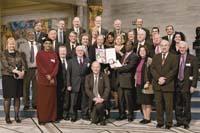
The IPCC received the 2007 Nobel Peace Prize (along with Al Gore). The award was awarded for awareness-raising and the proposal for measures to combat the risks arising from climate change.
(Photo: IPCC)
Today, the IPCC is one of the most reliable sources of information on climate change and its consequences. The IPCC conducts a climate change analysis based on data published in reports. The proposed action plans are in the hands of third parties.
Related information
Director of the BC3 (Basque Centre for Climate Change / Klima Aldaketa Ikergai)
The British Anil Markandya is a doctor of environmental economics. He has worked in research centers in Britain, Russia, Italy, the United States and France, being a member of the IPCC, Nobel Prize in 2007. The environmental economy and resources are the main lines of research.
You are a member and economist of the IPCC. What is your job at the IPCC?
I have worked in two IPCC working groups, the second and the third. These working groups analyse, inter alia, the impacts of climate change and greenhouse gas emission reductions, respectively. In any case, both in one and the other, the economic perspective is fundamental to measure the amount of costs and impacts. It is not the only point of view that must be taken into account, but it is one of the most important for governments, institutions and the international community.
What calculations has the IPCC carried out in the short, medium and long term in terms of reducing greenhouse gas emissions? Do you think those goals are achievable?
The IPCC can only analyze the possible consequences of greenhouse gas emission reduction strategies. Do not make calculations or recommendations. To stabilize the climate, that is, to increase the temperature between 1.5 and 4.5 degrees Celsius, it is necessary to start reducing emissions of these gases by 2020. Current emissions should be halved by 2050 and reach 20% of current emissions by 2080.
Climate change is a global problem and BC3 is a small research centre. What will this center bring to this broad problem?

(Photo: Photo gallery)
Through our lines of research we will analyze the basic keys to climate change. Of course, we are not going to face the problem just ourselves. In collaboration with other countries, we will try to answer the most relevant questions on climate change.
The effects of climate change are not known for sure in the world. However, BC3 wants to investigate the consequences of this phenomenon in the Basque Country. Is it possible to conduct local research?
Both local and general studies can be carried out. Despite its location in the Basque Country, the BC3 participates in a wide international network. We will therefore collaborate with other organizations to investigate how we can respond to climate change, especially in the fields of agriculture, greenhouse gas emissions, energy, transport and industry.
Until recently, experts said they had to face the problem. Measures are currently being investigated to mitigate the consequences. This is one of the lines of research of BC3. Does that mean that we are facing an irreversible phenomenon? That is, should we accept this reality and try to alleviate as much as possible its consequences?
Despite the reduction of greenhouse gas emissions I mentioned above, climate change may occur. Therefore, we have to prepare to face it. Therefore, part of our research has focused on finding methods to adapt to this situation.
What steps should be taken to mitigate these effects?
Many things can be done in many areas. One of them is the realization of investments aimed at protecting the coasts and low areas of the coast that could be flooded by flooding. Another possible modification in agriculture to respond to changes in humidity and a higher environmental temperature. The third could be to improve the alert system to forecast extreme conditions. And many more.
Thoreau pioneer
American writer and naturalist Henry David Thoreau participates in research on climate change, despite the death of its author in 1862. Thoreau analyzed the flora surrounding the Walden pond in his native country (Concord, Massachusetts) between 1851 and 1858, and constituted an important dataset on the presence of plant species and their flowering times.
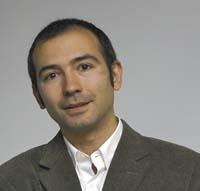
Antonio Casado. Researcher at the Department of Philosophy of Values and Social Anthropology, UPV.
This database has been used by researchers from Harvard and Boston universities to compare Thoreau's flora with the current one, and its work has been published in the prestigious American journal Proceedings of the National Academy of Sciences (PNAS). According to the conclusions of the study conducted by Willis and his co-workers, the change is evident: the common species bloom today on average seven days before and 27% of the species known to Thoreau have disappeared in Concord. The difference between the flora of the time and today is related to climate warming, as researchers consider that the loss of diversity is related to change in the flowering time.
But the debate remains open. On 6 March 2009, this article responded in the same journal arguing that the reason for the change may be the activity of vegetarian animals. This hypothesis has been rejected by Willis and his colleagues again using the database initiated by Thoreau. We can conclude that, on the one hand, controversies about climate change go beyond the field of climatology, since they have to do with numerous ecological hypotheses; on the other hand, this story highlights the role of the amateur scientist and the importance of science. In fact, XIX. Current scientists have achieved this result thanks to the diary of a 20th century naturalist.
Kortabitarte Egiguren, Irati
Services
254
2009
Security
024
Climatology
Dossier
Information











